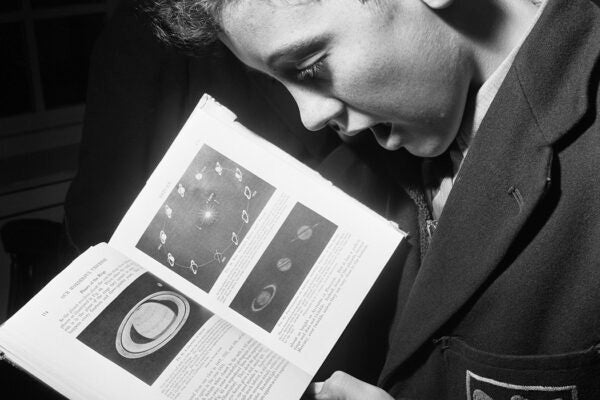“I hated academic writing when I started this class, but now I love it;” “My English classes before this one didn’t teach me nearly as much;” and my personal favorite, “Because of you, I finally understand why writing is important.” I’ve read variations of these sentiments in countless students’ portfolio letters: namely, that I’ve guided them from darkness into the light when it comes to writing and rhetoric. Those statements have a similar effect on me as eating a Big Mac. From the first bite on, a narcotic lull swallows my brain. Very quickly afterward, the meal reveals itself as empty.
In efforts to get students to take ownership of the rhetorical strategies taught in the English composition classroom, teachers have long used the portfolio framework, which entails a recursive revision process of various writing projects as well as a cover letter, in which the student reflects upon what they’ve learned. As the writing teacher Kimberly Emmons points out in her essay, “Rethinking Genres of Reflection: Student Portfolio Letters and the Narrative of Progress,” however, students often approach the cover letter—which many teachers see as being at least equal to a major essay assignment—by deploying what Emmons calls “the narrative of progress.” In essence, the narrative of progress is a vague statement of (often drastic) improvement that has no real substance (and questionable value).
As empty as the narrative of progress seems, I wouldn’t believe a teacher who claims that they’ve never felt gratified by such statements. That’s why we teach, isn’t it? To witness, firsthand, students’ intellectual progress and play a small role in it. Coming from one of my students, those sentiments locate some idealistic node in my brain and make it buzz. Students are fully aware of that rhetorical effect. The rhetoric scholar Kathleen Blake Yancey refers to that tactic as “the schmooze factor.” Much like that person at a party who, in the moment, radiates charm (likely because of how interesting they make you feel), the narrative of progress has a hypnotic tug.
Emmons encourages students to instead discuss specific and widely applicable rhetorical maneuvers and concepts in their portfolio letters, pointing to examples from their own work. In doing so, she says, students “are more likely to be able to transfer these skills to new writing situations.” As I see it, that’s the core purpose of English composition: to give students reading and writing tactics they can use with future academic, professional, and creative work. Pushing students toward that type of reflection also entails a fruitful reflective process for teachers, pushing us to ask not only how students can use rhetorical tools from a given course, but also what we should teach them about writing that will be useful beyond the scope of academia.
I’ve found myself thinking about that a lot: what I can teach composition students about reading and rhetoric that they can make use of inside and outside school. The reflection has to go both ways. I’ve found particular success in dissecting several different modes of writing with my students, teaching them to recognize the rhetorical architecture of styles like the listicle, album review, think-piece, and, of course, academic essay. I also don’t obfuscate what I want students to take away from that process, routinely discussing how they can use the analytical habits of mind required to examine the ways in which various writing modes function to successfully navigate unfamiliar rhetorical situations.
Weekly Digest
Emmons also argues that it’s important for students to critique the concepts and curriculum of a given class. When students discuss an aspect of a course they think they won’t use, it still pushes them to examine course concepts from a perspective that reaches beyond the composition classroom. That criticism can also lead students to develop their own ways of understanding rhetoric—individualized takes that will be far more valuable than simply seeing writing through their teacher’s eyes. Of course there are students who still navigate the cover letter by pinpointing what I want to hear with the prowess of an MMA fighter finding pressure points, saying something like, “Now I understand how to take apart and examine any writing mode and then use it myself.” Even still, it’s a large improvement from the narrative of progress.
Maybe I’m a weak person. Every time I pass a McDonald’s, though, I get a craving for a Big Mac. More specifically, I get a craving for that first bite of a Big Mac, the one that makes my neurotransmitters hum. I’ve tried to train myself to also think about the garbage disposal aftertaste that lingers for days after I eat a Big Mac, as well as the specific way that burger drains energy instead of creating it. It’s easier said than done, but I’m trying to train myself to see the narrative of progress in the same way.







